Credit cards have become a staple financial tool for millions of people worldwide, offering convenience and financial flexibility. However, understanding the terms and conditions associated with credit cards is crucial to managing your finances effectively. One such term that often puzzles cardholders is the 'grace period.' This article aims to break down what a grace period is, how it works, and its various implications for users.
A grace period is essentially a timeframe that credit card companies provide to allow cardholders to pay off their balances without incurring interest. Understanding this period is essential because it can significantly affect your financial health. By taking advantage of the grace period, you can manage your spending, avoid extra charges, and utilize your credit card more efficiently.
In the sections that follow, we will explore the concept of grace periods, how they operate, their advantages and misconceptions, and provide actionable tips to help you make the most of this feature.
What is a Grace Period?
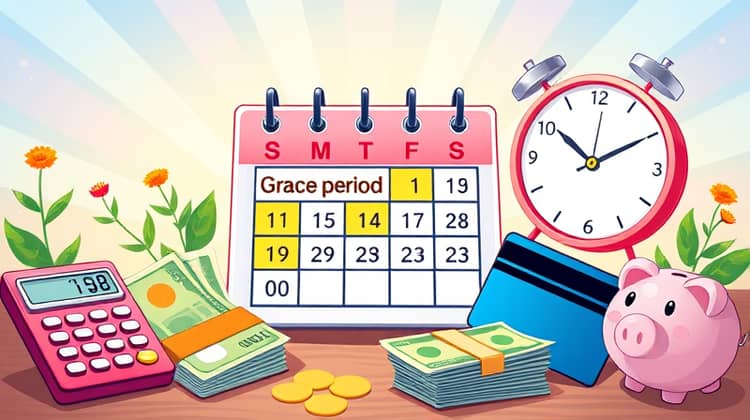
The grace period for credit cards is a time frame—typically ranging from 21 to 25 days—after the billing cycle ends during which you can pay your balance in full without having to pay interest on your purchases. This period is incredibly beneficial for cardholders who pay off their balance each month, as it allows them to avoid interest charges altogether.
To benefit from a grace period, it is important to note that you must pay your total outstanding balance by the due date stated on your statement. Failing to do so can result in interest accruing on your balance, thus negating the benefits of the grace period. Additionally, grace periods usually apply only to new purchases, not cash advances or balance transfers.
Overall, the grace period provides a cushion for cardholders, allowing them a little extra time to manage their finances before incurring any interest, giving you a structured way to handle payments and utilize your credit effectively.
How Does a Grace Period Work?
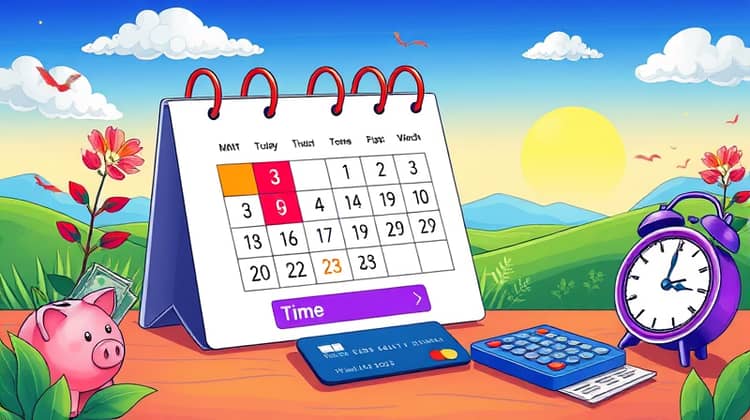
When you make a purchase using your credit card, it is added to your statement balance. When the billing cycle ends, you will receive a new statement outlining your purchases, the total amount owed, and the due date. The grace period begins after the end of this billing cycle, giving you time to pay off your balance before interest kicks in.
To take full advantage of the grace period, one must ensure they make their payment in full by the deadline set by their credit card issuer. This strategy is essential, as it keeps your costs down and allows for better financial management.
- Most grace periods last between 21 to 25 days depending on the issuer.
- Payments must be made on time to avoid interest charges.
- Grace periods apply only to new purchases, not to existing balances or cash advances.
Understanding this concept will help you plan your payments better and take advantage of your card's features without incurring unwanted interest fees.
Advantages of Grace Periods
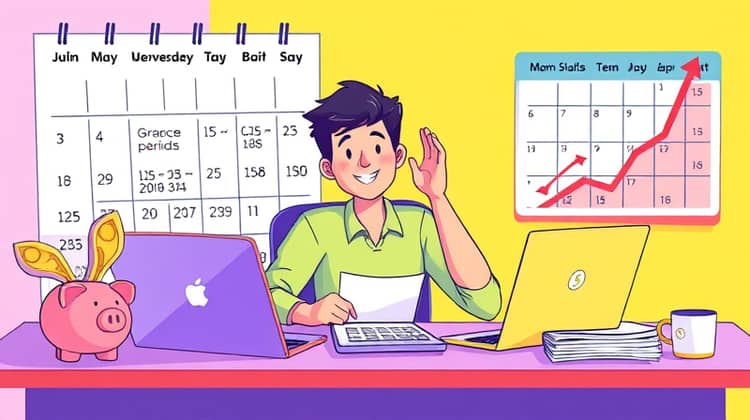
One significant advantage of grace periods is the ability to manage your cash flow effectively. With a grace period in place, you have some leeway to gather funds before your statement balance is due, which can be particularly beneficial during tight financial months.
Additionally, using your credit card during its grace period can help build your credit history and improve your credit score, provided you pay the balance on time. This is because timely payments are one of the primary factors that affect your credit score.
- Allows for more time to pay off balances.
- Helps in avoiding unnecessary interest charges.
- Encourages responsible usage of credit and timely payments.
By leveraging grace periods, credit cardholders can foster better financial habits and use credit cards without incurring extra costs.
Misconceptions About Grace Periods
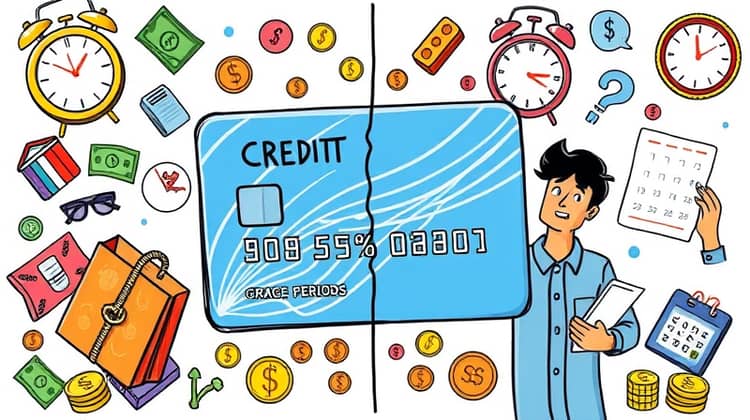
A common misconception about grace periods is that they apply to all transactions made with a credit card, including cash advances and balance transfers. However, this is not the case, as grace periods typically do not apply to these types of transactions, which often begin accruing interest immediately.
It's also misunderstood that grace periods allow you to skip a payment without penalty. In fact, while they do allow for a delay in interest accumulation, failing to pay your balance during the grace period can still result in penalties if carried forward.
- Grace periods do not apply to cash advances.
- You cannot use a grace period to skip payments entirely.
Understanding these misconceptions can help cardholders manage their expectations and avoid potential pitfalls associated with their credit usage.
Tips for Maximizing Your Grace Period

Maximizing your grace period requires careful financial planning and discipline. By knowing your billing cycles and due dates, you can organize your budget to ensure you have the necessary funds available when the time comes.
Keeping track of your spending and avoiding exceeding your credit limit will also help you maintain financial health during this period.
- Keep a calendar reminder of billing cycles and due dates.
- Pay your bill in full and on time to take advantage of your grace period.
- Monitor your spending to stay within limits.
By following these tips, you can significantly benefit from the grace period provided by your credit card issuer.
Grace Periods and Balance Transfers

When considering balance transfers, it's critical to understand how grace periods work. Many credit card issuers offer promotional balance transfer rates; however, it’s paramount to know that these often do not come with grace periods. That means any balance you transfer starts accruing interest immediately unless paid off by the stipulated due date.
As such, it's advisable to thoroughly read the terms and conditions related to the grace period of the card you're using for balance transfers to avoid unexpected interest charges.
- Assess the terms of your balance transfer offers for grace period applicability.
- Pay attention to ending dates for promotional rates to avoid interest buildup.
- Always aim to pay off any transferred balances before the promotional period ends.
Understanding the interaction between balance transfers and grace periods can help you make informed financial decisions.
Cash Advances and Grace Periods
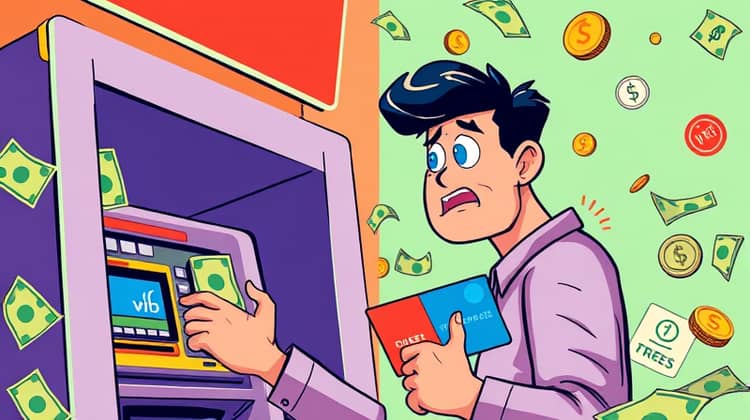
Cash advances are treated differently than purchases when it comes to grace periods. Generally, cash advances do not come with a grace period, meaning the moment you withdraw cash from your credit line, you begin accruing interest. This can lead to high costs if you're not careful.
Furthermore, fees can also accompany cash advances, making it crucial for cardholders to avoid using credit cards for cash unless absolutely necessary.
- Avoid taking cash advances unless necessary.
- Be aware that interest on cash advances starts immediately.
- Understand the fees associated with cash advances before proceeding.
By understanding the relationship between cash advances and grace periods, you can avoid extra costs and manage your finances more responsibly.
Changes to Grace Periods

Credit card issuers can change the terms of your grace period at any time. This may include adjustments to the length of the grace period or changes in the terms under which interest starts accruing. Staying informed about your credit card terms is crucial, as these changes can impact your financial obligations and strategy.
Regularly reviewing your credit card agreements can help you catch any changes early. It's also advisable to contact your issuer if you notice adjustments that affect your grace period.
Conclusion

Understanding credit card grace periods is pivotal for effective financial management. By taking the time to comprehend how they work, the advantages they provide, and the potential pitfalls, you can use your credit card much more strategically.
By effectively managing your grace periods, you can improve your credit score, avoid paying unnecessary interest, and enhance your overall financial health. Knowledge is power when it comes to financial decisions, and being educated about your credit card's terms will position you for success.














